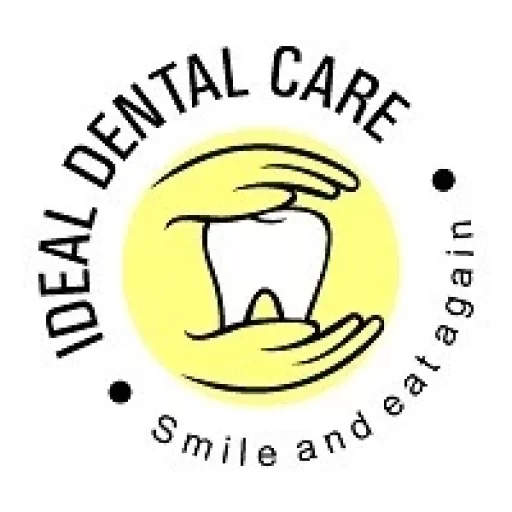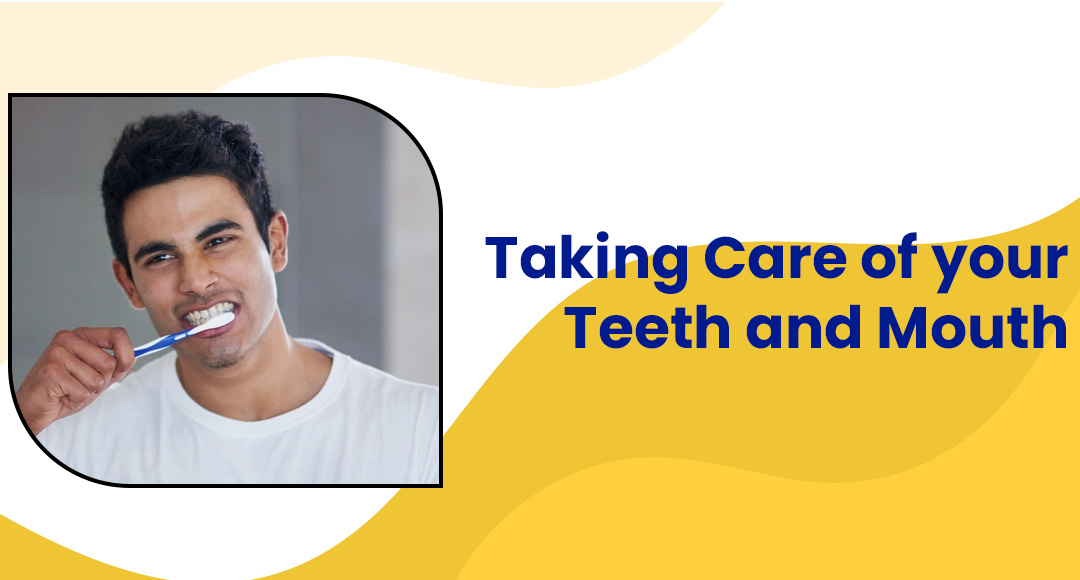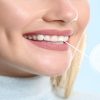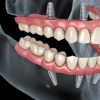TAKING CARE OF YOUR TEETH AND MOUTH
Taking care of your teeth and mouth is essential for maintaining good oral health. Your mouth is the primary entry point of your body, and oral health problems can significantly impact your overall health and well-being. Healthy teeth and gums not only make it easy for you to eat properly and enjoy good food, but they also give you the confidence to smile and speak with ease.
Good oral hygiene practices like brushing & flossing regularly, taking care while eating, and routine dentist visits can help maintain the strength of teeth and gums as you age. Cleaning teeth with a good toothbrush and the best tooth gel in the world can help remove plaque. Mouth washing can also help to clean your teeth and gums and freshen your breath.
In this blog post, we’ll take a closer look at the importance of taking care of your teeth and mouth. We’ll explore the different ways you can take care of your oral health, from daily cleaning of teeth to regular dental check-ups. So, let’s dive in!
Tooth Decay
Dental care is crucial for maintaining healthy teeth and preventing problems of teeth. The hard outer coating of teeth is called enamel, which can be harmed by a thin film of bacteria called dental plaque that builds up daily. The bacteria in plaque produces acid that can cause cavities and other problems with teeth. Brushing and flossing your teeth daily can prevent decay and keep your teeth healthy.
If a cavity forms, it must be fixed with a filling by a dentist to avoid further damage. To protect your teeth from decay, it is recommended to use fluoride toothpaste. You may need additional fluoride if you are more prone to the risk of tooth decay due to conditions or medications that cause dry mouth. Your dentist may give you a fluoride treatment during an office visit or recommend using a fluoride gel or mouth rinse at home. It’s essential to make sure that you practice good dental care habits and visit your dentist regularly to maintain good oral health. So, take care of your teeth and stay healthy.
Gum Disease
Plaque buildup along and under your gum line causes gum disease, which starts as an infection that can harm the gum and bone holding your teeth in place. Gingivitis is a temperate form of gum disease that can make your gums red, tender, and more prone to bleeding. It can be cured by regularly brushing and flossing your teeth.
Periodontitis is a serious form of gum disease that necessitates skilled dental care. This infection can cause sore, bleeding gums, painful chewing problems, and even tooth loss if left untreated. Following a few simple steps is essential to prevent gum disease.
- Routinely Brushing teeth twice a day with fluoride toothpaste and floss.
- Regularly visiting the dentist for cleanings and checkups and notifying them of any medical conditions or medication you are taking.
- Maintaining a healthy, well-balanced diet and quitting smoking can also assist in reducing the risk of developing gum disease.
How to Clean Your Teeth and Gums
Brushing and flossing your teeth is done correctly. Daily:
- Brush your teeth gently on both sides with a soft-bristled toothbrush and fluoride toothpaste. Every 3 to 4 months, replace your toothbrush.
- Use short back-and-forth strokes and little circular motions.
- Brush gently and carefully along your gum line.
- Brush lightly or use a tongue scraper to keep your mouth clean.
- Use dental floss, pre-threaded flossers, a water flosser, or a similar tool to clean your teeth. This eliminates plaque and food particles that a toothbrush cannot reach.
- After flossing, rinse thoroughly.
It may be difficult for those with arthritis or other diseases that limit hand motion to hold and operate a toothbrush. Here are some helpful hints:
- Make use of an electric or battery-powered toothbrush.
- Purchase a toothbrush with a more extended handle.
- With a wide elastic band, secure the toothbrush handle to your hand.
If flossing or brushing makes your mouth hurt or your gums bleed, consult a dentist. Ask your dentist to demonstrate how to use floss properly. A floss holder can be helpful if you have problems flossing.
Dentures
Dentures are sometimes required to replace severely damaged teeth or teeth lost due to gum disease. It is possible to replace one or more lost teeth using partial dentures. At first, dentures could feel weird. Your dentist might need to see you frequently to ensure the dentures fit correctly. Your gums will change form over time, and you might need to replace or alter your dentures. Make sure to leave these changes in your dentist’s hands.
When wearing dentures, use caution because it could be more difficult for you to feel hot foods and beverages or detect bones in your food. It could be simpler to learn to eat with dentures if you:
- Begin by eating soft, non-sticky foods.
- Food should be cut into little pieces.
- Use both sides of your mouth to chew slowly.
Keep your dentures clear of food that can stain them or give you poor breath. Avoid eating anything crunchy or tiny that could get stuck under your dentures and irritate your gums. Every day, use a denture-care product to brush your dentures, and at night, soak them in water or a denture-cleansing solution. To avoid swollen gums, keep them out of your mouth while you sleep.
Dry Mouth
You develop a dry mouth when you don’t spit enough to keep your mouth moist. Speaking, swallowing, tasting, and even chewing food may be challenging. Your chances of cavities, oral fungus infections, and tooth decay can all be increased by having a dry mouth. Numerous common medications can bring on this issue. For instance, medicines for depression, high blood pressure, and bladder control difficulties may induce dry mouth.
You can take actions that might be helpful. Drink some water or something without sugar. Avoid alcohol, caffeine, soft drinks, and acidic fruit juices, and don’t smoke. Skip the spicy and salty foods. Tart sugar-free gum or hard candy might be helpful. Your dentist or doctor might advise using artificial saliva to keep your mouth moist.
Oral Cancer
Any area of the mouth or throat, including the tongue, can become the first site of oral cancer. People over the age of 40 are more prone to experience it. Your dentist can check for oral cancer symptoms during a routine dental examination. Pain is typically not a disease’s first sign. Before the infection spreads, treatment is most effective. You should visit your dentist every six months for routine oral cancer screenings even if you have lost all your natural teeth.
There are several ways to reduce your chance of developing mouth cancer:
- Avoid using tobacco products, including cigarettes, cigars, pipes, chewing tobacco, and snuff.
- If you do consume alcohol, do so sparingly.
- Use sunblock and lip balm.
- Scientists are still learning about the long-term health impacts of electronic cigarettes (or “e-cigarettes”) because they are a relatively new invention. However, we are aware that the vapor from e-cigarettes includes carcinogens.
Take Away
In conclusion, good oral health is essential for overall health and well-being. You can maintain a healthy smile and overall well-being by taking care of your teeth and mouth. You can eat properly, appreciate delicious cuisine, and speak with assurance if your teeth and gums are healthy. By maintaining appropriate oral hygiene practices, such as regular brushing and flossing, fluoride toothpaste, and routine examinations and cleanings at the dentist, it is possible to prevent tooth decay and gum disease.
Dentures or partial dentures may be necessary in cases of tooth loss or gum disease, and it is crucial to adhere to the dentist’s recommendations for their use and maintenance. Finally, if you experience dry mouth, it is necessary to consult your dentist and doctor to determine the cause and explore treatment options.




